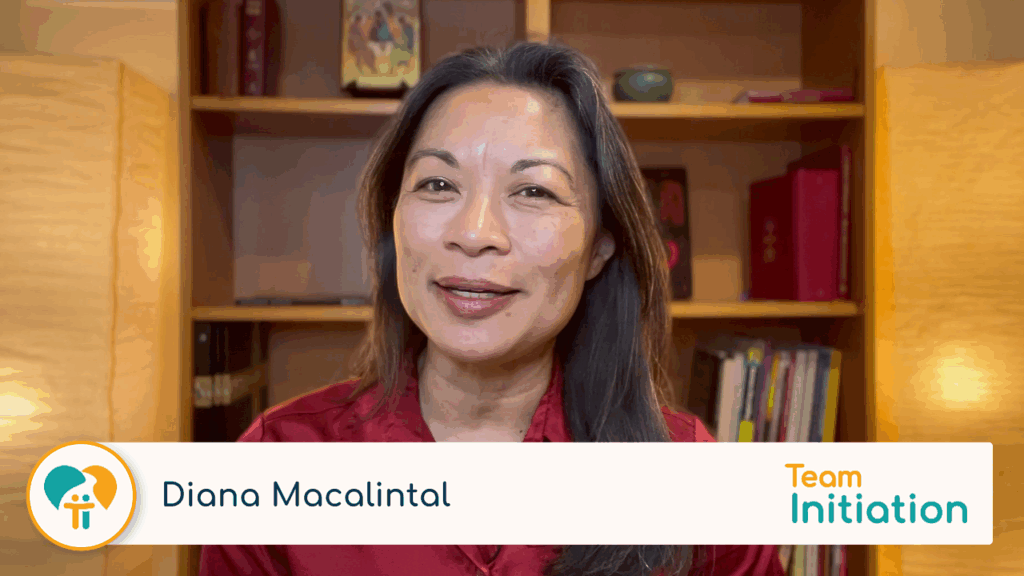Can you name the difference between a drifter and a pilgrim? When the Prodigal Son left his father’s house, he was a drifter. When he decided to return, he was a pilgrim. A drifter has no sense of purpose and no goal. A drifter is often seen as someone who is avoiding and escaping the realities of life.
A pilgrim is going someplace specific. They are diving into life, exploring the mystery of being, seeking an encounter with the “something more” that we all sense.
Drifters and Pilgrims
As catechumenate leaders, we encounter both drifters and pilgrims. I think most drifters are really just pilgrims-in-waiting, as the Prodigal Son was when he left. We often encounter drifters who want to become pilgrims when they show up and ask, “How do I become Catholic.” We also encounter drifters out in the world when they see us “acting Catholic” and become curious about us. They sense the “something more” in us and want to discover what it is that we have.
Pope Francis tells us that when we encounter such people, we have to practice the “’art of accompaniment’ which teaches us to remove our sandals before the sacred ground of the other (cf. Ex 3:5). The pace of this accompaniment,” says the pope, “must be steady and reassuring, reflecting our closeness and our compassionate gaze which also heals, liberates, and encourages growth in the Christian life.” (Joy of the Gospel, 169).
The Prodigal Son was seeking freedom. He thought if he could get away from his father and all the obligations imposed on him, he would be free. He failed to see that he was giving up his freedom in exchange for helplessness and hopelessness. As accompanists, we have to help both drifters and pilgrims move toward God, where true freedom lies.
We often encounter drifters who want to become pilgrims when they show up and ask, “How do I become Catholic.” We also encounter drifters out in the world when they see us “acting Catholic” and become curious about us. They sense the “something more” in us and want to discover what it is that we have.
How do we get where we need to go?
The way we do that, somewhat paradoxically, is by listening. Pope Francis says:
We need to practice the art of listening, which is more than simply hearing. Listening, in communication, is an openness of heart which makes possible that closeness without which genuine spiritual encounter cannot occur. Listening helps us to find the right gesture and word which shows that we are more than simply bystanders. Only through such respectful and compassionate listening can we enter on the paths of true growth and awaken a yearning for the Christian ideal: the desire to respond fully to God’s love and to bring to fruition what he has sown in our lives.
Joy of the Gospel, 171
In a world full of drifters, the art of accompaniment is crucial. Through sacred, compassionate listening, we can help others discover the “something more” — the Divine Mystery — that frees and fulfills us.
Can you help me out?
I’d love to know how this is landing. Can you share a word or a phrase about how this article resonates with you? Does it speak to your experience? Share your thoughts in the comments box below. Thanks for being part of the conversion!



















I think the transition between drifter and pilgrim is part of the conversion process. We can recognize that conversion has begun by the intent to go somewhere specific–to find Jesus and follow him. The listening is a large part of whether someone remains a drifter–are we listening to their story? Everyone comes with their story but if there is no sacred, safe space to share it, they may never see that Christ has been in their story for some time. RCIA is like a mirror, they tell us their story, we reflect it back, but show how God has been there, they just didn’t see. My most recent “Aha!” or Holy Spirit prompting was as I was stressing to rush some catechumens to Easter Vigil by helping them get married in the Church. I felt the Lord say, “Stop, give them more time to get to know me!” Blessings!
Thanks for sharing, Deborah. I’m so inspired by your willingness to listen to the promptings of the Holy Spirit.
When I first started in initiation ministry I approached every seeker as a pilgrim and gave them a program that everyone followed to get to the destination of the Easter sacraments. As I matured (i.e. humbled myself to accompany rather than lead), I have seen the Holy Spirit bear the most fruit when I listen to and with the drifters in the slow, sometimes convoluted path of faith and deep relationship with God and the Church.
Hi Lori. I did that too. I think you nailed it when you said the key is to humble ourselves to accompany rather than lead. Thanks for your thoughts.
Thank you, Deborah and Lori. Our parish had been under the leadership of one who uses the classroom style of learning – for over 30years. There was no deep listening in humility. After she left, we had to restructure how we journey with the current elects and it has been a different dynamic. We (animators) have seen a paradigm shift in our relationship with the catechumens and with each other. We listen more to them and to each other and we have seen how they opened up to our sharing of the faith. Praise be to God. 🙏💖
Hi Joana. Thanks for sharing your story. I’m so happy for you. Thanks for your dedication to this ministry through all those years.
I LOVE what you said about the difference between a drifter and a pilgrim. Wow! I had never given that some thought, especially in its application to the Prodigal Son. WOW, just WOW. I am going to use your analysis in future formation of team members.
Hi, Dolores! I’m so glad you found that helpful. Blessings on all the great work you are doing.
Thanks Nick for a great article. The idea of drifter and pilgrim really resonates with me. At the moment I’m seeing a particular demographic – young men aged in their 20s and 30s who really fit into the “drifter” category. They seem to be lacking purpose/direction. Yet, when they see other young (or older) men witnessing to their faith – and being prepared to walk with them – something inside them changes. There is a subtle shift from drifter to pilgrim. I’m praying that I have my ears and eyes open for those blessed moments. Lenten blessings to TeamRCIA.
That’s a good insight, Sharon. I am guessing a lot of young men (and maybe women?) in that age group would fit into the “drifter” category. I’m glad you are attentive to those who are showing up in your life.
What a timely article! Today, a friend stopped by for coffee and conversation. A life-long Methodist, she is unhappy with her church and is now a pilgrim, seeking a church that better meets her spiritual needs. “I could almost be a Catholic!”
We had an honest, heartfelt discussion, led by her, and when she left, she knew that I am always here to listen. Now I leave it, so to speak, in the hands of the Spirit.
For now, I accompany her in prayer.
Wow Catherine, that’s awesome. Whatever happens, I know God was using you in that moment with your friend. Thanks for sharing your story.
This is helpful, and your examples are good. However, breaking this open even further by giving more details as to what you consider some of the parts of accompaniment would be helpful.
Hi Sr. Beth. We’re going to go into more depth at our free training webinar later this month. https://teaminitiation.com/presents/trwebinar/
Hope to see you there!